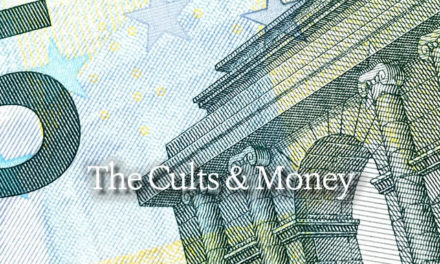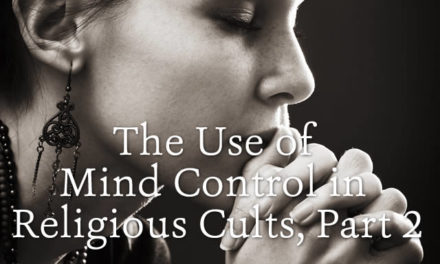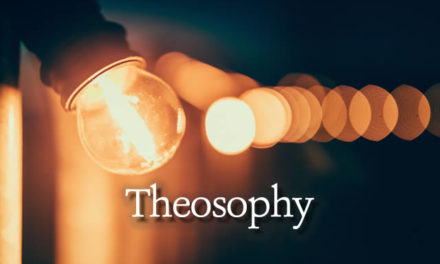Positive Confession is the belief that if a believer speaks “spiritual” or “faith-filled” words then he can have what he says. Unfortunately, this influence has invaded the church and continues to cause much turmoil and confusion.
Many of the teachers of the word-faith movement believe that words are so powerful that they can influence the physical and spiritual worlds. For example:
In The Tongue, a Creative Force (1976), positive confessionist Charles Capps, teaches that there are powerful “spiritual” words. Such words, which are ordinary words, can under certain circumstances, become vehicles for creative or supernatural power.
When “faith-filled” spiritual words are spoken (as words of power), they can alter the physical and spiritual world. Capps says, “You see there is more to it than just saying it. The words must originate from the inner man where spiritual power is released through words.”
He goes on to state that “spirit words can control both the spirit world and the physical world. Because the words themselves have power, they will work for either God or man in the same manner.” He goes on:
“The spirit of man is not of this world, it is of the spirit world. The creative ability of man comes through his spirit. He speaks spirit words that work in the world of the spirit. They will also dominate the physical world. He breathes spirit life into God’s Word and it becomes a living substance, working for him as it worked for God in the beginning. These spirit words dominate the natural world” (p. 117-118).
What Capps is alluding to in the above statement is his teaching that since God, “by His faith” (using words) spoke this physical world into existence; the believer, using faith, can do the same. That is, the believer can speak things into existence. However, God’s word is already “quick and powerful” (Hebrews 4:12), and it is referred to as the “Word of Life” (Phillipians 2:16). It is not necessary to activate it by speaking words of faith as though it were asleep or dead! Rather, it is by hearing the “living” word that one is brought to salvation through faith in Christ. (Romans 10:17)
A number of the prosperity teachers believe that the spiritual world controls and continually forms the physical world. So, if one can learn to control the spiritual world, then he can learn to control the physical world as well. This teaching then becomes the foundation for securing individual prosperity.
That is why in Releasing the Ability of God, Capps states, “You can have what you say! (because) the powerful force of the spiritual world that creates the circumstances around us is controlled by the words of the mouth. This force comes from inside us; the confession of our mouth will cause you to possess it” (pp. 98-99, parenthesis mine). This is why he teaches, “Discipline your vocabulary,” and “today your word is god over your circumstances” (pp. 101-104).
Capps also teaches that the power within a Christian, within one’s spirit, functions according to unchangeable laws. He says “These principles of faith are based on spiritual laws. They work for whosoever will apply these laws” (The Tongue, p. 103).
D. R. McConnell, in his book, A Different Gospel, directly traces the origin the spiritual laws taught in positive confession to the metaphysics of E.W. Kenyon, a man of 50-60 years ago whose theology was that of Pentecostal Christian Science (A Different Gospel, pp. 3-56).
McConnell records Kenneth Copeland in The Laws of Prosperity (p. 98, 101) as saying, “You can have what you say! In fact, what you are saying is exactly what you are getting now. If you are living in poverty and lack and want, change what you are saying. It will change what you have. Discipline your vocabulary. God will be obligated to meet your needs because of His word. If you stand firmly on this, your needs will be met” (Ibid., p. 173).
McConnell further states, that E.W. Kenyon’s New Thought classmate, Ralph Waldo Trine, attributes the confession of prosperity to “Occult power.” He says that “Trine believed that thought is a force, and it has Occult power of unknown proportions when rightly used and wisely directed” (Ibid., p. 174).
The usage of Occult powers is, of course, a practice that the Word-Faith teachers would publicly reject. Of course, this is not to say that those offering these teachings are Occultists. They are teachers who may never have thought through the implications of the practices they advocate. They may be unaware of the similarities between certain aspects of positive confession and Occulict practices. Nevertheless, the similarities do exist, and these practices are neither Biblical nor Christian.
John Ankerberg’s issue of News and Views, June 1988, p. 1, reports that these words are used in religious rituals to influence both the spirit world and the material world. The report quotes Occult magician David Conway discussing the power of magical words to affect these worlds:
“Unseparable from magical speculation about words is the theory of vibrations, which supposes that certain sounds have a powerful acoustic impact on both the spiritual and astral worlds. Like the spiritual world and astral plane can in some circumstances be affected by sound, so that verbal magic may be said to derive its power not only from the idea contained in certain words, but from the peculiar vibrations these words create when spoken” (Magic: an Occult Primer, pp. 74-75).
Occultists, of course, have long claimed the true inner nature of man is powerful, capable of exercising divine ability. This is why New Ager Benjamin Creme says, for example, “One doesn’t pray to oneself, one prays to the God within. The thing is to learn to invoke that energy which is the energy of God. Prayer and worship as we know it today will gradually die out and men will be trained to invoke the (inner) power of deity” (The Reappearance of Christ and the Masters of Wisdom, pp. 135-136, parenthesis mine).
The reason that positive confessionists can place so much emphasis on the inner man and his divine power is that they think the believer is a god. Kenneth Copeland says, “You don’t have a god in you, you are one” (Copeland’s sermon tape The Force of Love). And Kenneth Hagin says, “The believer is as much an incarnation of God as Jesus Christ” (Hagin, Word of Faith, p. 14).
To the positive confessionist, scripture passages such as Proverbs 18:21, “Death and Life are in the power of the tongue;” and James 3:8-10 are taken as proof of this doctrine, because they believe as “little gods” they have the same power as God through their own words.
Is it any wonder that Charles Capps says “The confession of your mouth even after you have prayed correctly will determine whether or not you receive. You can release the ability of God through the words of your mouth” (Releasing the Ability of God, 1978, pp. 93, 96).
For Christians words and faith are important, but there is a limit to what words can do.
It can help or hurt a close friend or a total stranger by what one says, but to treat words as if they were some “star wars” type weapon by which one alters or manipulates reality is not biblical, but Occultic. If one could change reality by the power of words spoken, then that would put man on the same level with God. This is exactly what teachers of the “positive confession,” or word-faith movement, claim.
We are told by God Himself that He spoke the creation into existence (Genesis 1). He has not given that power to anyone else!
By David Henke






